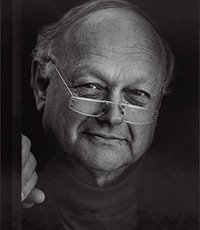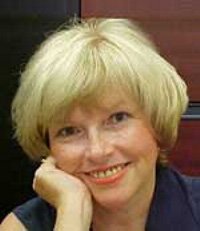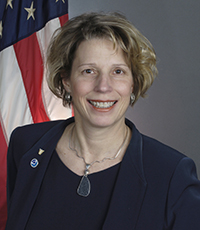In two weeks' time, Dalhousie will celebrate its next class of graduates — and, alongside, three outstanding individuals.
Fall Convocation ceremonies take place on Monday, October 3 and Wednesday, October 5 in the Rebecca Cohn Auditorium of the Dalhousie Arts Centre.
More info: Convocation website
One of the highlights of Convocation is the presentation of honorary degrees. As outlined by the Dalhousie Senate, the degrees honour "both the individual and the University and contributes to the recognition and celebration of excellence in society in a manner that reflects the University's character and values within the community and the world."
(Currently, Senate has a call out for nominations for honorary degree candidates for Spring and Fall Convocation 2018. Learn more.)
Read more about each of this fall's honorary degree recipients below.
 Glenn Marcus Murcutt
Glenn Marcus Murcutt
Architectural innovator
Monday, October 3 (9 a.m. ceremony)
Australian architect and teacher Glenn Murcutt's ecologically sensitive house designs have earned international acclaim and inspired legions of architects around the world to consider landscape and the environment as essential elements in the architectural process. Although he has worked primarily on private homes in Australia over his more than 50 years in the field, Mr. Murcutt’s influence has spread beyond borders, thanks in part to his extensive teaching and lecturing abroad.
Mr. Murcutt was born in London, England in 1936, to Australian parents. He spent the first five years of life in Papua New Guinea before his parents moved the family to Sydney, Australia. Following a diploma in architecture from the Sydney Technical College, Mr. Murcutt set up his own private practice in 1969.
Working as a sole practitioner has provided Mr. Murcutt the freedom and control to experiment with wind patterns, materials, light and climate, and to cater projects to clients’ needs and their ecological surroundings. By paying attention to such details, he has been able to design houses that respond to their unique Australian environment and climate. His homes are built using materials manufactured with as little energy as possible and designed to operate with the same principle in mind.
Among Mr. Murcutt’s dozens of awards are some of the highest honours in his field, including Finland’s Alvar Aalto Medal and the American Institute of Architects’ Gold Medal. He was also the recipient of the Pritzker Architecture Prize in 2002, widely regarded as the Nobel Prize of the architecture world.
 Dr. Linda Lee O’Brien-Pallas
Dr. Linda Lee O’Brien-Pallas
Nursing research trailblazer
Monday, October 3 (12:30 p.m. ceremony)
Dr. Linda O’Brien-Pallas’ trailblazing research has led to changes in Canada’s health-care system and many others around the world to improve the well-being, quality of work life and workplace satisfaction of nurses. Her needs-based health human resource planning framework remains an internationally recognized standard, a robust model to better support primary health-care workers, nurses, nurse practitioners and midwives.
Dr. O’Brien-Pallas is Professor Emerita at the University of Toronto’s Faculty of Nursing, where she was a faculty member for 23 years. During that time, she was one of the Faculty’s most successful nurse scientists, generating $40 million in external funding and co-founding the Nursing Health Services Research Unit in 1990 — the first funded nursing research unit in Canada.
Her scholarly work and achievements have made substantial contributions to the profession of nursing and to health services delivery in Canada and internationally. These include research on retention and recruitment in the face of projected human resource challenges, informing strategies implemented in Nova Scotia and across Canada to help avert an immediate crisis in nursing human resources this decade. Her work continues to have global reach through organizations like the WHO/PAHO Collaborating Centre in Dalhousie’s School of Nursing, led by her former PhD student Dr. Gail Tomblin Murphy.
From 2000 to 2010, Dr. O’Brien-Pallas served as National Chair of Nursing/Health Human Resources for the Canadian Institutes of Health Research and the Canadian Health Services Research Foundation. Among her many awards and honours are three sequential Career Scientist Awards (1989-1999) from the Ontario Ministry of Health, fellowship in the Canadian Academy of Health Sciences (2005), and the Canadian Nurses Association’s Jeanne Mance Award (2006) — Canada’s highest award for nursing. This is her first honorary degree.
 Zdenka Saba Willis
Zdenka Saba Willis
Ocean advocate
Wednesday, October 5 (12:30 p.m. ceremony)
A healthy ocean means healthy ecosystems — and healthy people. That’s why Zdenka Willis, director of the United States Integrated Ocean Observing System (IOOS) Program, has worked tirelessly for more than 35 years to study the global ocean and advance safer, more sustainable ways to make use of its critically important resources.
Ms. Willis’ career in oceanography began in 1981 when she was commissioned by the U.S. Navy after finishing a degree in marine science at the University of South Carolina. (She subsequently completed master’s degrees in meteorology and oceanography and in national strategy.) During her 25 years as a naval officer, Ms. Willis gained extensive experience in the collection of oceanographic and meteorological data and in its analysis and dissemination.
Ms. Willis next served as director of the National Oceanographic and Atmospheric Administration’s National Oceanographic Data Center, and was later recruited to lead the IOOS program. As its director, Ms. Willis has fostered better coordination among regional ocean-observing systems and relevant agencies in the U.S. and helped standardize the gathering, analysis and dissemination of data nationally and internationally. Her efforts have resulted in many tangible benefits, including improvements in the rapid response to marine emergencies — changes that continue to save lives.
Guided by the mantra "measure once, use many times," Ms. Willis has worked to ensure the free, open sharing of ocean data globally. She has served as chair of the Global Ocean Observing Systems Regional Alliances, is an integral member of the governance council of the Dalhousie-based Ocean Tracking Network, and has also been a passionate champion for ocean science at Dalhousie in general.

